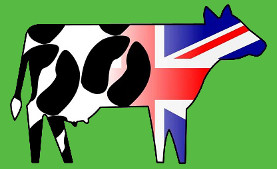By Bareille, N. and Beaudeau, F. and Fourichon, C. and Seegers, H., Preventive Veterinary Medicine, 1998
Description
The study describes the profiles of culled cows in order to assess the possible contribution to economic losses due to health disorders. Data regarding dates of birth, final calving and culling, parity at culling, milk yield at the two first test-days of the final lactation and reason(s) for culling were collected in a 5-year survey, carried out from 1989 to 1994 in 84 commercial Holstein farms in western France. Polytomous logistic regression was used to assess the relationship between parity, calving-to-culling interval, milk yield and eight groups of primary culling reasons (i.e. udder disorders; infertility or reproductive disorders; lameness or foot/leg defects; emergency culling reasons; other health disorders; low milk yield; sales for dairy purpose; and other voluntary culling reasons), Out of a total of 5133 culled cows, the proportions of culls, for each of these groups of reasons, were 12.4, 78.4, 2.7, 3.9, 4.6, 16.7, 5.9, and 25.4%, respectively. Cows culled for udder disorders left the herd earlier in lactation and were more frequently at parities 4-6 than cows culled for voluntary reasons. In contrast, cows culled for infertility were younger and culled later within lactation. They were also higher yielding cows than those culled for other reasons. Cows culled for lameness were similar to those of the voluntarily culling group. Cows culled for emergency reasons were more frequently younger cows in early lactation. Cows culled for other health disorders left the herd early in lactation, but at a higher parity than the voluntarily culled cows. These results suggest that most of the culls related to health could be contributing to economic loss. However, special priority should be given to reduce culling for reproductive problems, which is the most costly exit reason. (C) 1998 Elsevier Science B.V. All rights reserved
The study describes the profiles of culled cows in order to assess the possible contribution to economic losses due to health disorders. Data regarding dates of birth, final calving and culling, parity at culling, milk yield at the two first test-days of the final lactation and reason(s) for culling were collected in a 5-year survey, carried out from 1989 to 1994 in 84 commercial Holstein farms in western France. Polytomous logistic regression was used to assess the relationship between parity, calving-to-culling interval, milk yield and eight groups of primary culling reasons (i.e. udder disorders; infertility or reproductive disorders; lameness or foot/leg defects; emergency culling reasons; other health disorders; low milk yield; sales for dairy purpose; and other voluntary culling reasons), Out of a total of 5133 culled cows, the proportions of culls, for each of these groups of reasons, were 12.4, 78.4, 2.7, 3.9, 4.6, 16.7, 5.9, and 25.4%, respectively. Cows culled for udder disorders left the herd earlier in lactation and were more frequently at parities 4-6 than cows culled for voluntary reasons. In contrast, cows culled for infertility were younger and culled later within lactation. They were also higher yielding cows than those culled for other reasons. Cows culled for lameness were similar to those of the voluntarily culling group. Cows culled for emergency reasons were more frequently younger cows in early lactation. Cows culled for other health disorders left the herd early in lactation, but at a higher parity than the voluntarily culled cows. These results suggest that most of the culls related to health could be contributing to economic loss. However, special priority should be given to reduce culling for reproductive problems, which is the most costly exit reason. (C) 1998 Elsevier Science B.V. All rights reserved
We welcome and encourage discussion of our linked research papers. Registered users can post their comments here. New users' comments are moderated, so please allow a while for them to be published.
